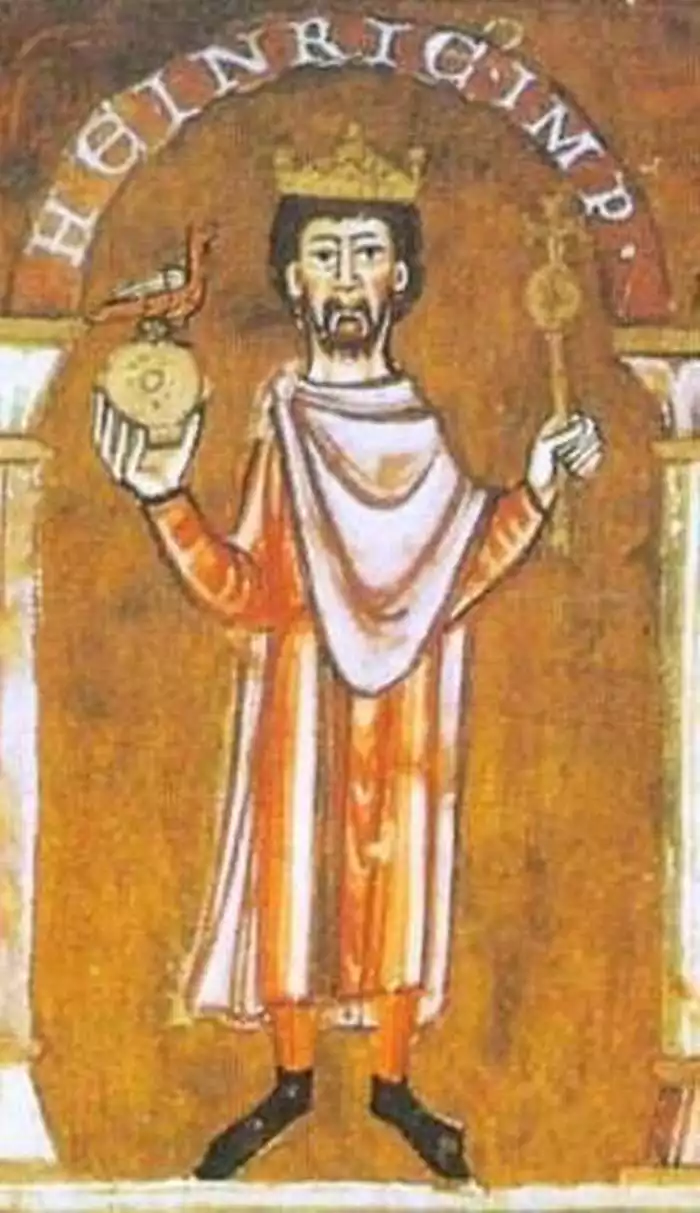
Henry IV, Emperor of the Holy Roman Empire, remains a pivotal figure in medieval European history. Born on November 11, 1050, and passing away on August 7, 1106, his reign is marked by significant political and religious developments. Henry IV’s rule was characterized by his tumultuous relationship with the Papacy, particularly during the Investiture Controversy, a major conflict between secular and ecclesiastical powers in medieval Europe. His struggles with Pope Gregory VII over the appointment of bishops led to his famous Walk to Canossa in 1077, a significant event symbolizing the conflict between church and state. This period highlights the complexities of power dynamics in medieval times and the intricate interplay between religious authority and imperial politics.
Early Life and Ascension to Power
Henry IV’s early life set the stage for his eventful reign. The son of Henry III and Agnes of Poitou, he was thrust into a position of power at a young age. Upon his father’s death in 1056, Henry IV, merely six years old, was appointed King of Germany. His minority was overshadowed by a series of regencies, which were marked by internal power struggles within the Empire.
As he came of age, Henry IV’s rule began to take shape, reflecting his assertive and, at times, confrontational nature. His early reign was characterized by efforts to consolidate power and assert his authority over the rebellious German nobility. These initial endeavors laid the groundwork for what would become a defining aspect of his reign: the Investiture Controversy.
Henry’s actions and policies, aimed at strengthening imperial control, inevitably brought him into conflict with the Church. The Investiture Controversy, emerging in the late 11th century, was centered around the appointment of bishops and abbots. This conflict would not only define Henry IV’s reign but also significantly alter the landscape of church-state relations in medieval Europe.
Throughout his reign, Henry IV navigated a complex web of political challenges, both from within the Empire and from external forces. His efforts to maintain imperial authority amidst growing tensions with the Papacy exemplify the intricate dynamics of medieval politics and the delicate balance between secular and ecclesiastical power.
The Investiture Controversy and Its Impact
The Investiture Controversy stood at the heart of Henry IV’s reign, profoundly impacting his legacy. This dispute arose over the right to appoint, or invest, bishops and abbots – a privilege claimed by both the Holy Roman Emperor and the Papacy. Henry IV’s insistence on his right to invest bishops clashed directly with the reformist agenda of Pope Gregory VII, leading to an intense power struggle. The controversy peaked with Henry’s excommunication and his dramatic penitential journey to Canossa in 1077, symbolizing the complex interplay between secular and ecclesiastical authority in medieval Europe.
Henry’s later years were marked by continued conflicts with the Papacy, as well as internal strife within the Empire. His ongoing battles, both literal and figurative, with the Church and his own sons, who rebelled against his authority, culminated in a reign that was as tumultuous as it was transformative. Despite these challenges, Henry IV’s reign significantly shaped the medieval political and religious landscape, highlighting the evolving relationship between Church and state.
Henry IV’s legacy is one of complexity and contradiction. His reign, dominated by the Investiture Controversy, highlighted the growing tensions between secular and ecclesiastical powers in medieval Europe. While his actions often led to conflict and controversy, they also played a crucial role in defining the boundaries between Church and state. Henry IV’s reign remains a significant period in the history of the Holy Roman Empire, reflecting the intricate dynamics of power, faith, and politics in medieval Europe.
References
- History of the Germans. “Henry IV.” Accessed December 21, 2023. History of the Germans.
- Study.com. “Emperor Henry IV of the Holy Roman Empire.” Accessed December 21, 2023. Study.com.
- Tellenbach, Gerd. “Church, State, and Christian Society at the Time of the Investiture Contest.” Basil Blackwell, 1940.
